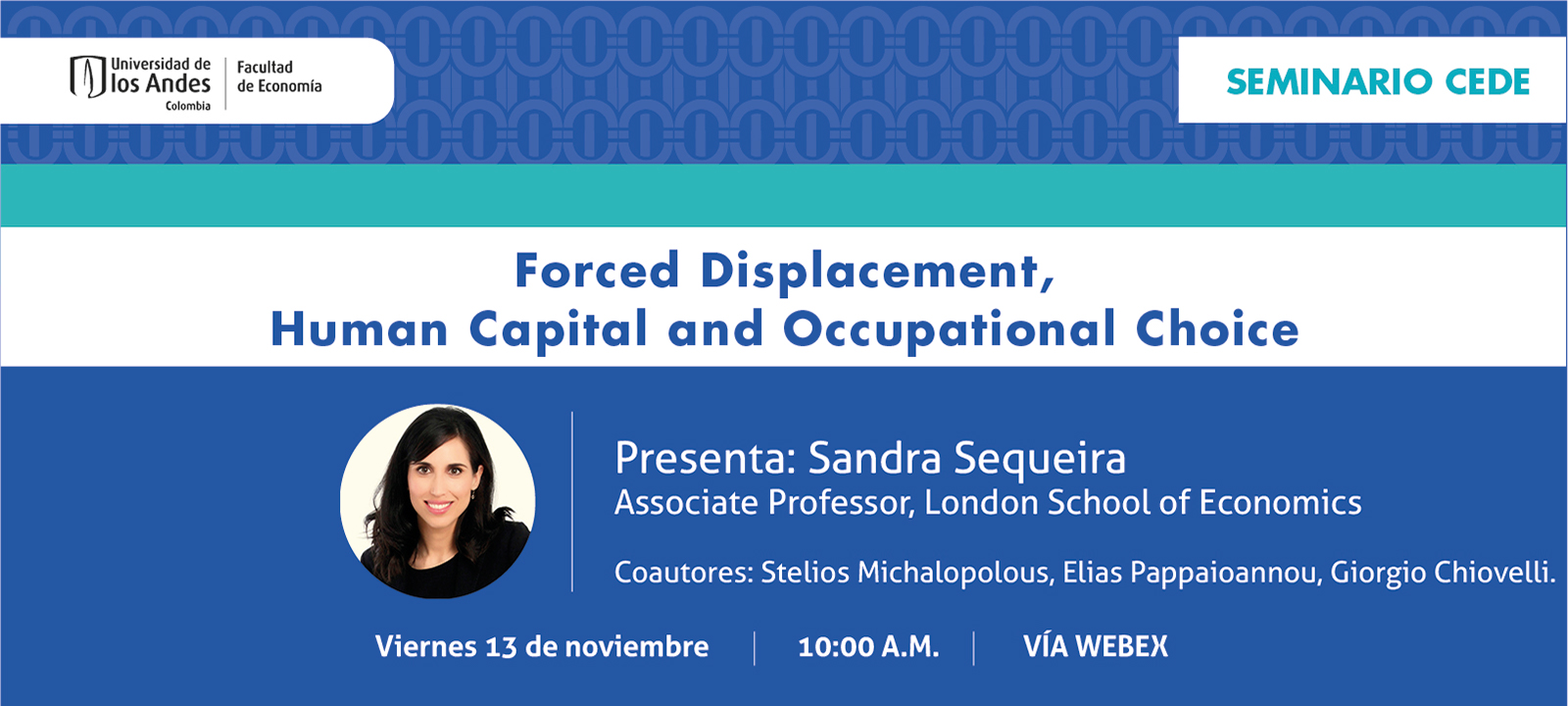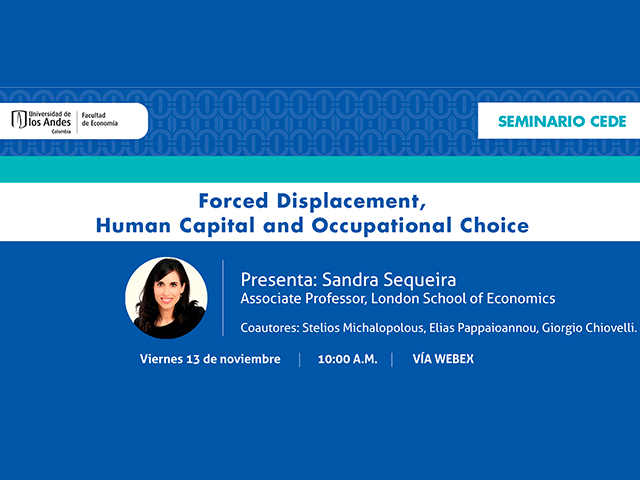Seminario CEDE - Sandra Sequeira

We examine the impact of conflict-driven displacement on investments in human capital and occupational choice, looking at the Mozambican civil war (1977-1992), one of the largest and most diverse forced displacement episodes in recent times. Mozambique's uniquely rich 1997 census allows us to trace the movement of more than 4 million individuals who were either internally displaced into cities and rural areas or externally displaced into refugee camps in neighboring countries. To overcome selection in displacement trajectories, we compare the displacement experience of siblings separated during the war, in areas equidistant (in terms of transport costs) to cities and to refugee camps. Children displaced into urban areas were more likely to invest in education and later experience a shift towards occupations outside of agriculture, even when they returned to the countryside once the war was over. Displacement to refugee camps in neighbouring countries yields no discernible differences in education and occupational specialization compared to rural non-movers. These patterns hold even when restricting our sample to twins and to siblings of the same gender and age group. Increased investments in schooling do not appear to be driven by increased access to school but instead, by a reduction in violence and by a move to areas with a higher stock of human capital, particularly cities. We then conduct a survey in one of Mozambique's largest cities to uncover the long-run impact of forced displacement. We show that displaced individuals have significantly higher education than their siblings, and that they seem to have integrated socially into urban areas, having comparable views and attitudes to non-mover city-dwellers. Yet, internally displaced individuals have lower mental health levels, lower levels of intra-community trust, and are less optimistic about economic mobility relative to city dwellers not displaced during the war. These findings underscore how forced displacement can act as a mobility shock that breaks links with subsistence agriculture, increases investments in education, and consequently increases human capital accumulation. However, it may come at the cost of decreased mental health.

